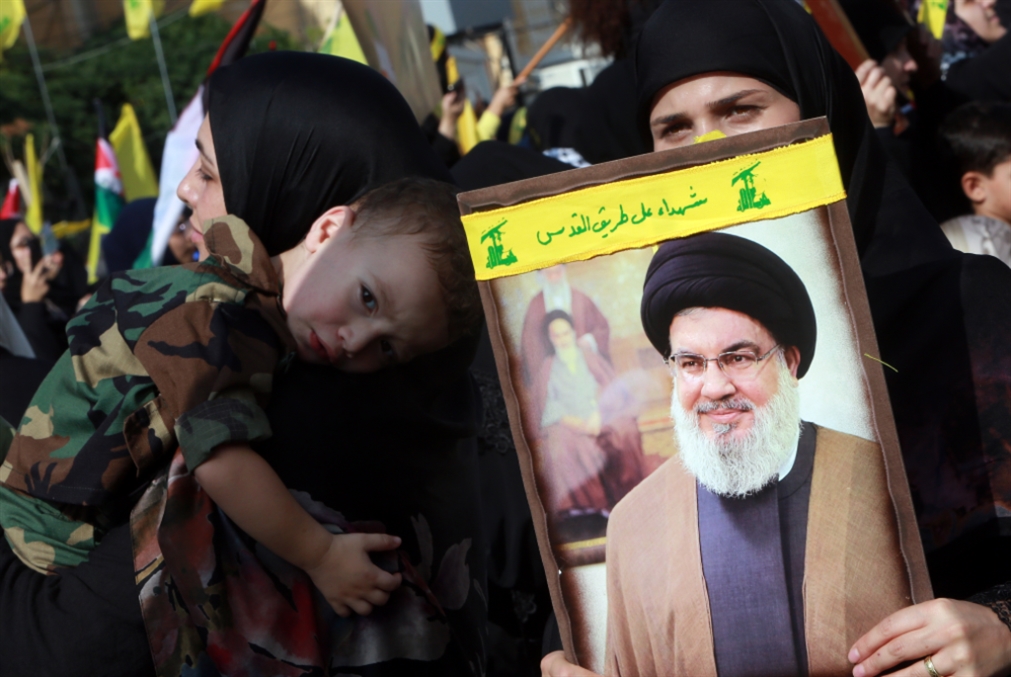"The popular and political reactions to the speech by Hezbollah Secretary-General Sayyed Hassan Nasrallah ranged between those who welcomed the fact that the Resistance leader did not act emotionally despite the intensity of violence against the Palestinians and those who viewed it as a “disappointment” due to their desire for a more aggressive stance against the occupation. While the people of Gaza are facing [the full force of the occupation’s] barbarism, and to be clear, they are the only ones who have the right to demand more action from Hezbollah and its leadership, it is somewhat comical when comments come from individuals or groups that are historically opposed to the actions of the Islamic Resistance.
Nasrallah’s long absence from the public scene was far from ordinary. True, it had an aspect related to purposeful ambiguity designed to disorient the enemy. However, there was another reason for this delay. The resistance required time to come to decisions regarding the resistance’s strategies in Lebanon and the region in defense of Palestine against the “Israeli” occupation on the one hand, and [strategies for confronting] its Western backers, especially Washington, on the other hand.
Separate from emotions and desires, it should be noted that Nasrallah was not in an enviable position considering what to say to an audience that loves the Resistance but an audience that was left for weeks without updates and clarifications from the Resistance leadership [in Lebanon.] This is a problem for [Hezbollah] because people have been significantly influenced by the enemy’s crimes and its massacres in Gaza. Additionally, they have become prey to the narratives of outsiders, consisting of activists, media figures, and even politicians, who took on an air of authority on matters as if they were members of the Joint Operations Room.
These outsiders did not limit themselves to military and political analyses that are not within their purview, but they also let their imaginations run wild pretending that they knew about the intricate details of the Resistance’s plans in Lebanon and the region. This, combined with Nasrallah’s long silence and Hezbollah’s leadership not providing explanations about the events, left the public eagerly awaiting Nasrallah’s to declare the start of a massive battle.
Nevertheless, what Nasrallah announced yesterday reflects the unified vision of the entire Axis of Resistance. He is seen as the most influential figure in the Axis and he has in-depth intelligence about the forces and circumstances on all battlefields across the region. He had to carry out the task of explaining everything that has happened in Palestine since the initiation of operation Al-Aqsa Flood up until the ongoing battles in Gaza, including the mobilization of the United States and other Western military forces in the region.
What Nasrallah said yesterday can be understood as the political introduction of a new path that will be pursued by the Resistance in Lebanon, as well as the rest of the Axis of Resistance. When he spoke candidly about the lofty objectives of ending the aggression on Gaza and helping Hamas and the Palestinian Resistance achieve victory, this was an escalation itself. This means that the resistance has entered a new phase in military operations, which we can expect to see soon. Perhaps when Nasrallah returns next week to deliver a speech on the anniversary of Martyrs’ Day he will provide more details on this phase, the nature of the threats [against the enemy], the means of accomplishing the stated objectives, and to prepare public opinion for the many difficulties that may arise and what is required of them on varying levels.
Nasrallah was not confused or bewildered yesterday. On the contrary, he was probably more composed than one would expect. He is a man driven by passion against the enemy’s crimes against the region’s peoples, especially against the Palestinians, who remain his primary focus and the primary focus of the Axis of Resistance. Everything that was said and unsaid yesterday was successful [in advancing the goals of the resistance,] as long as people’s trust in the resistance in Lebanon and Palestine remains strong and unshaken in spite of these trying times."

